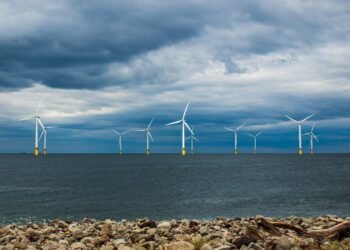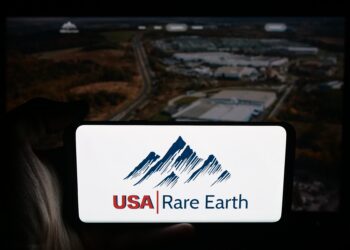A growing number of people are willing to pay extra for the things they buy, if it helps protect the planet’s scarce natural resources.
A survey carried out by Ipsos for the World Economic Forum has found that 71% of people agree that businesses whose activities use scarce natural resources should pay additional taxes – even if that pushes up the purchase price of goods and services.
An even greater majority – 85% of adults across 28 countries – said they want to see “information on the use of scarce natural resources” available on product labelling.
A dividing line
A total of 19,510 adults were quizzed online by Ipsos between 21 May and 4 June 2021. On a country-by-country basis, their responses reveal a pattern emerging.
Although there are some exceptions, on the whole, the willingness to see taxes and price increases to protect scarce resources was stronger in developing economies.
China, India, Colombia, Chile and Peru are the top five countries where people believe such an arrangement is a good idea. The bottom five are: Japan, Poland, the US, Germany and Hungary.
There was a similar developed/developing economy split in the responses to the idea of product labelling. Broadly, developing countries were more enthusiastic. Resistance to the idea of natural resource labelling was less pronounced, however.
In response to the statement about paying more for things that use finite resources, the strongest opposition was in Japan – 54% disagreed or strongly disagreed. Japan was also the country where people were less inclined toward labelling changes. But in this case, 21% disagreed and 5% strongly disagreed.
Lifestyle changes
The split in response between developed and developing nations is reflected in a 2020 report in the science journal Nature Communications, which states that the predominant economic models across the world are responsible for negative environmental impacts.
The increase of CO2 in the atmosphere shares a very similar trajectory to indicators like GDP growth and something called material footprint, which describes raw material extraction rates.
As the report’s authors state, “Any transition towards sustainability can only be effective if far-reaching lifestyle changes complement technological advancements”.
What are the solutions?
The need to reduce consumption and waste appears to be widely acknowledged in the Ipsos data. But how to go about it?
Moving away from our current linear ‘take-make-dispose’ approach to a more circular economy is considered a key strategy by the World Economic Forum.
Proponents of the circular economy are putting forward alternative ways of production that will help address some of the problems of over-consumption. The circular economy is based on three main principles:
- Products should be designed to use fewer resources and contribute less waste
- Materials used to produce goods should be reused and repurposed
- Natural resources should be protected and replaced
These principles also inform The Circulars Accelerator, an initiative launched by Accenture in partnership with Anglo American, Ecolab, Schneider Electric and the World Economic Forum, to support entrepreneurs in finding innovative solutions to sustainability challenges.
By Sean Fleming, Senior Writer, Formative Content.












